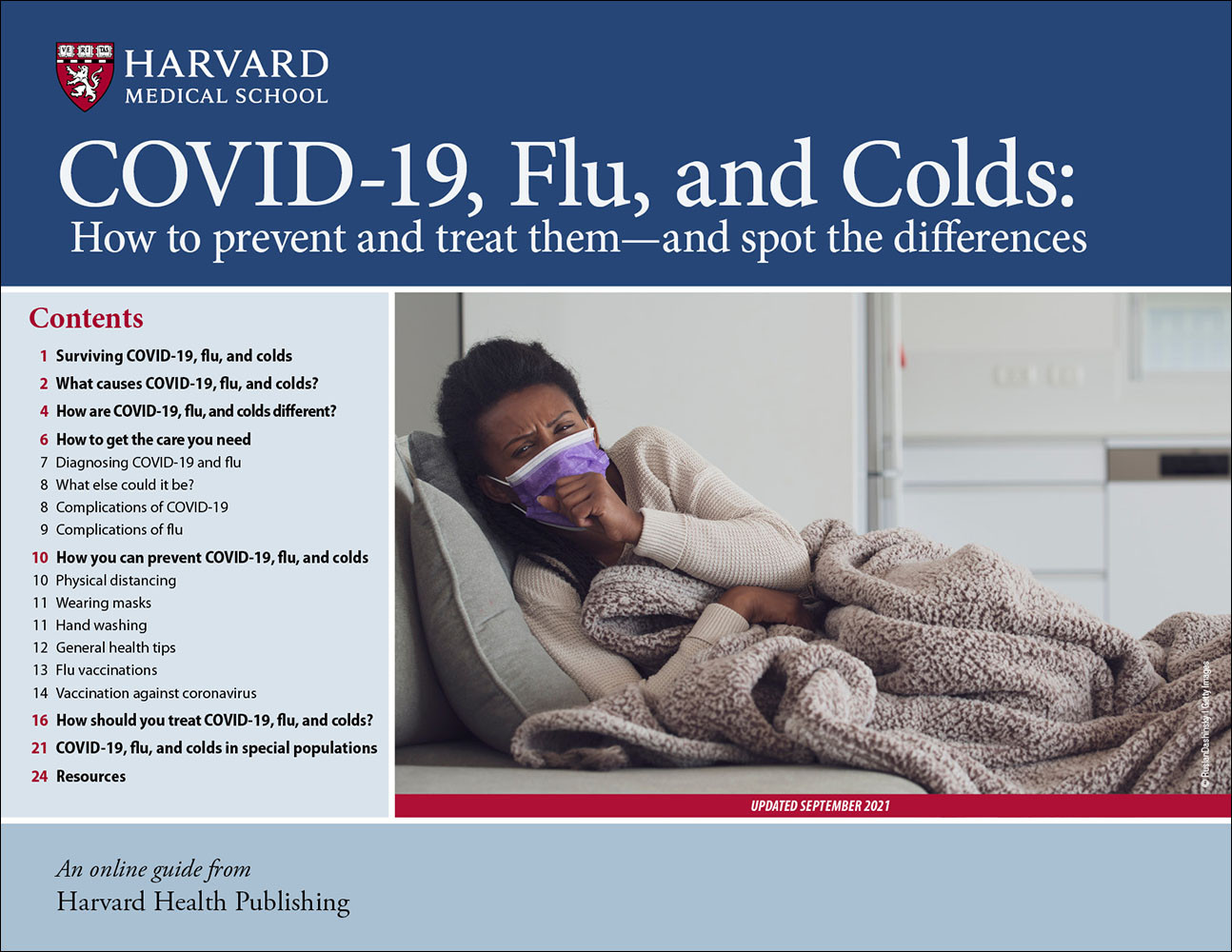More evidence links flu infection to heart attack risk
Research we're watching
- Reviewed by Christopher P. Cannon, MD, Editor in Chief, Harvard Heart Letter; Editorial Advisory Board Member, Harvard Health Publishing

A diagnosis of influenza (flu) was linked to a sixfold risk of having a heart attack over the following week, according to a study in the June 25, 2024, issue of NEJM Evidence.
The study included adults ages 35 and older who were tested for respiratory viruses over a 12-year period ending in 2019. The testing revealed more than 23,000 separate cases of influenza. Researchers then compared the incidence of heart attack during the risk period (the week after a positive test) to the control period (one year before and 51 weeks after the risk period). Heart attacks were six times more likely to occur during the risk period versus the control period. Earlier research has consistently shown a heightened risk of heart attack soon after viral infections like the flu, as well as the common cold and COVID-19.
The findings are a good reminder to get your annual flu vaccine if you haven't already. On average, the vaccine can reduce your chance of getting the flu by about 50%.
Image: © PixelsEffect/Getty Images
About the Author

Julie Corliss, Executive Editor, Harvard Heart Letter
About the Reviewer

Christopher P. Cannon, MD, Editor in Chief, Harvard Heart Letter; Editorial Advisory Board Member, Harvard Health Publishing
Disclaimer:
As a service to our readers, Harvard Health Publishing provides access to our library of archived content. Please note the date of last review or update on all articles.
No content on this site, regardless of date, should ever be used as a substitute for direct medical advice from your doctor or other qualified clinician.
















